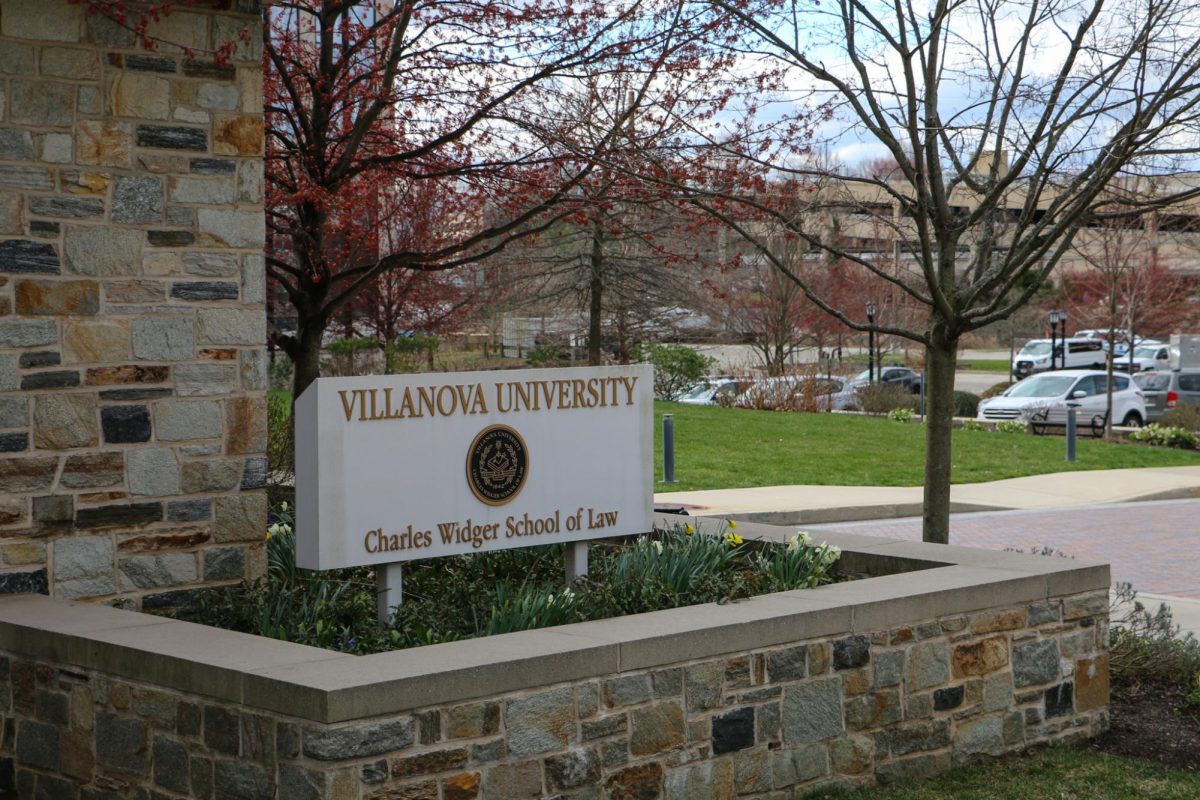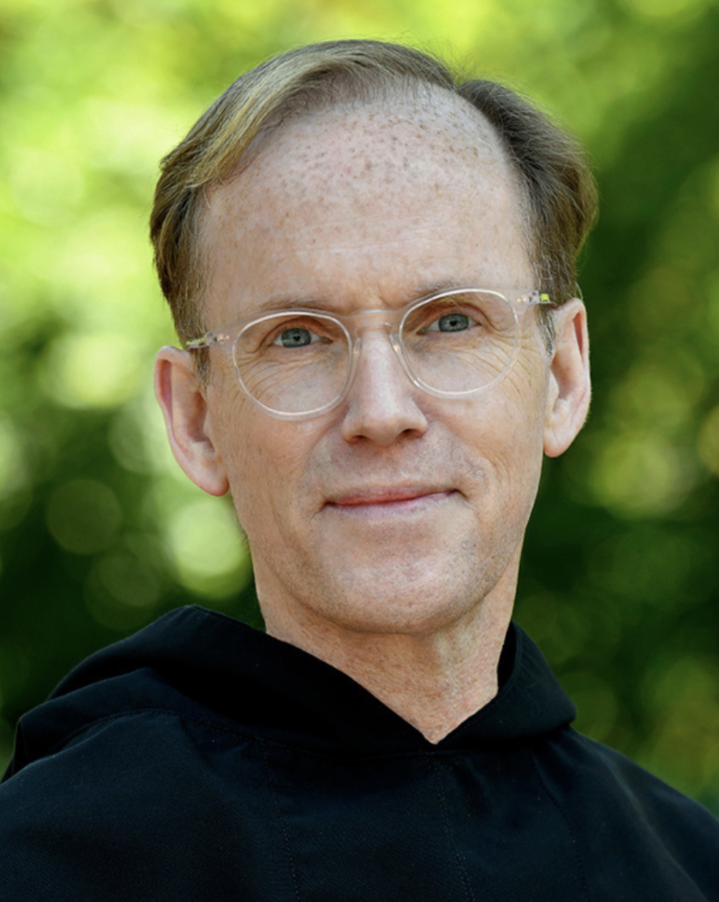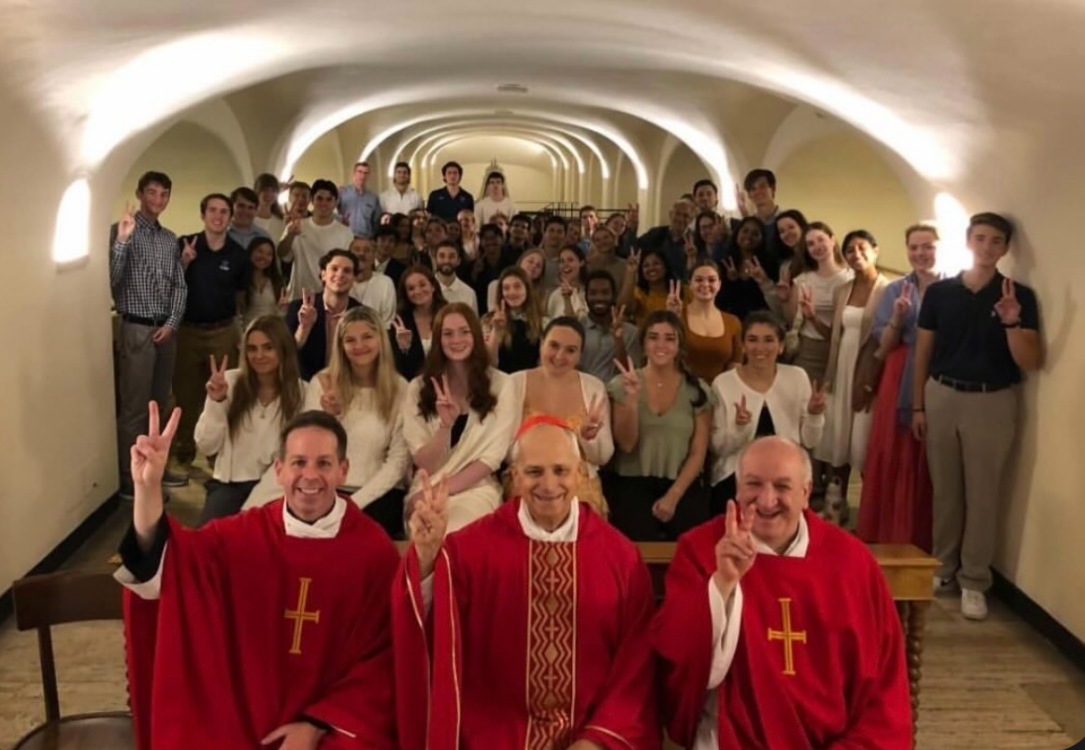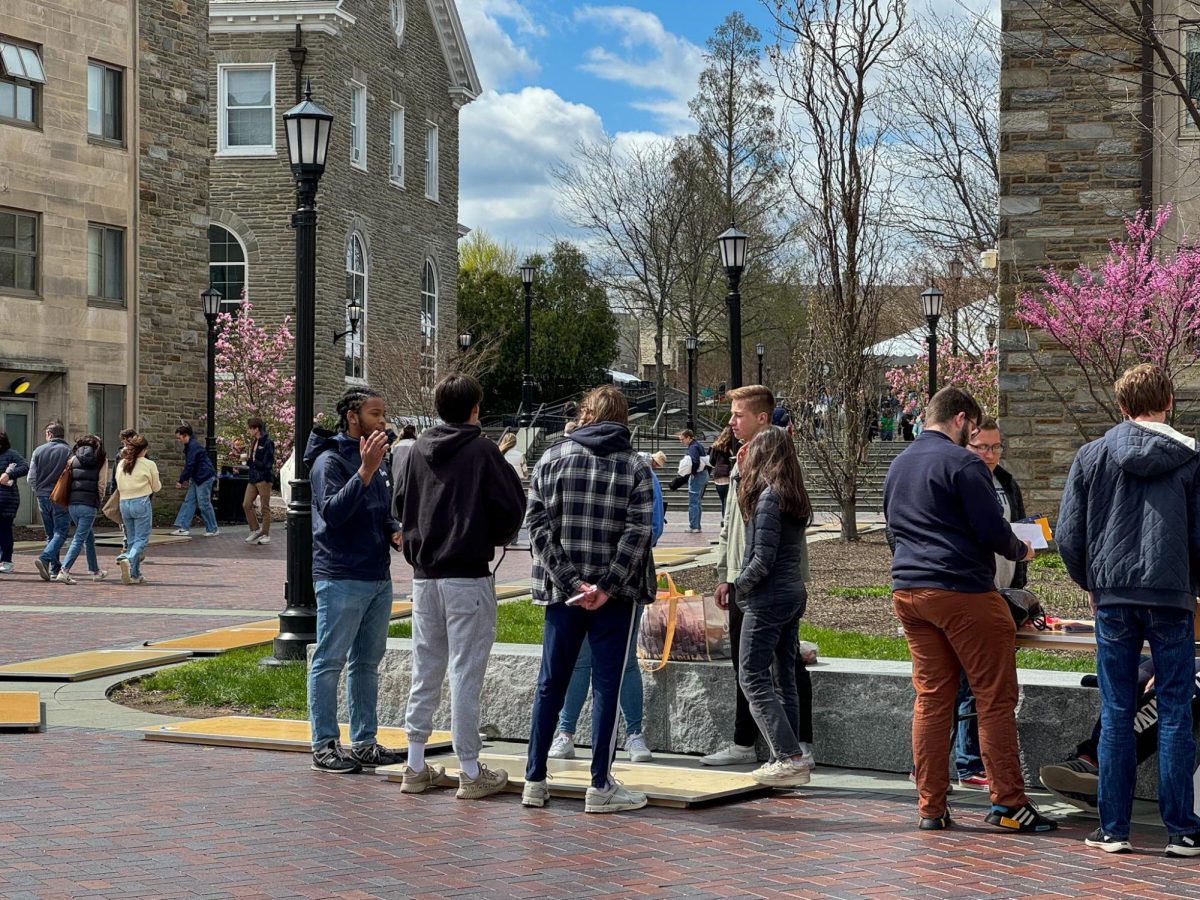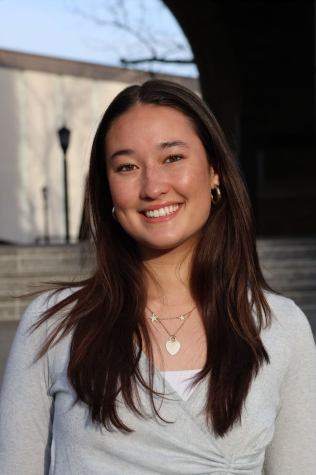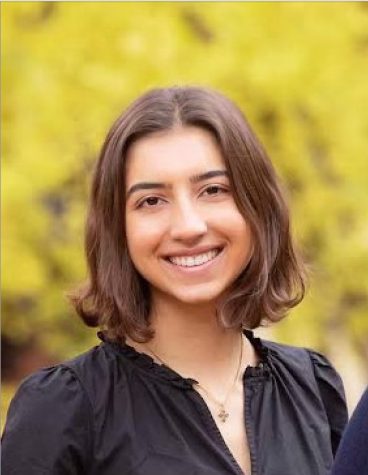Judge Kyle Duncan, of the United States Court of Appeals for the Fifth Circuit, visited Villanova University on Monday, March 18 to discuss free speech and higher education.
Presented by the Eleanor H. McCullen Center for Law, Religion and Public Policy, with support from the Hovnanian Family Foundation, the event was a highlight of the McCullen Center’s distinguished speaker program. This series, which brings three speakers from the legal profession to Charles Widger School of Law each semester, has showcased notable individuals, including Supreme Court Justice Amy Coney Barrett in 2019.
While the program draws a regular audience of law students, professors and alumni, Judge Duncan’s visit to Villanova Law School drew significant attention and sparked polarized reactions regarding his invitation to speak.
Duncan was appointed by President Trump in 2018, and his entry into the judiciary was marked by controversy, a fact underscored by his narrow 50-47 Senate confirmation vote. His career, characterized by involvement in contentious legal areas, specifically as an LGBTQ-rights opponent, continues to spark vigorous debate and discussion.
One year ago, in March 2023, Judge Duncan was at the center of controversy at Stanford Law, when he was invited by the Stanford Federalist Society to lecture on the Fifth Circuit in relation to the Supreme Court. He was met with more than 200 heated, passionate students who loudly protested Judge Duncan because they vehemently opposed his past cases, decisions and statements. The protestors shut down his lecture and created a national conversation about the right to free speech and the role it plays in higher education, which was the core of the event at Villanova. Stanford University apologized to Judge Duncan and issued a lengthy statement about their free speech policies, the line between speech and silencing and the importance of engaging those with whom you disagree.
During the event at Villanova, Judge Duncan explained the incident at Stanford Law from his perspective. “It’s a great country, where you can [protest like what was done at Stanford], and no one will do anything to you, but there is a difference between dialogue and shutting down people you don’t like,” Judge Duncan said.
The event at Villanova was organized and facilitated by Michael Moreland, University Professor of Law and Religion and the Director of the Eleanor H. McCullen Center for Law, Religion and Public Policy. Professor Moreland, himself has “known [Judge Duncan] pretty well for a number of years, even before he was a judge.”
When asked if Judge Duncan, who has been deemed both unfit and extreme by Senate Democrats, is an extremist, Professor Moreland responded, “No, he is very much in the mainstream of judges on a range of issues.”
After highlighting Judge Duncan’s past actions, such as defending Louisiana’s same-sex marriage ban and authoring an amicus brief against the right to marry in the landmark Supreme Court case Obergefell v. Hodges during his tenure as a lawyer, Professor Moreland was once more questioned about whether Judge Duncan’s positions could be considered extremist.
“That was before the Supreme Court had decided [Obergefell v. Hodges] as a matter of Constitutional Law, and there were and still are many people who have different views about the Constitutional status of same-sex marriage. The Chief Justice of the United States wrote a dissent in the 2015 case that held that there was a Constitutional right to same-sex marriage, which he read from the bench,” Professor Moreland replied.
“I think there is a range of disagreements that people can have on issues like [same-sex marriage], and I think that the positions Judge Duncan took as a lawyer representing a government client were within the range of what people then and still regard as reasonable Constitutional views,” Moreland continued.
When asked what he would tell a member of the LGBTQ community at Villanova who, in the context of Judge Duncan’s history, is upset about him coming to campus, Professor Moreland said, “Come listen to the arguments and what that person has to say. Think about it and ask questions. Be open to different views even if you disagree and treat people with respect.”
This approach was exemplified at the event. OUTLaw, an organization for LGBTQ law students and their allies, alongside VUPride, the university’s undergraduate group for LGBTQ students and allies, attended Judge Duncan’s event, embodying Professor Moreland’s call for open dialogue and mutual respect.
VUPride, in tandem with Villanova’s Undergraduate Student Government Association (SGA)’s Diversity Equity and Inclusion (DEI) Department, planned a silent, sit-in protest to symbolize their opposition to the speaker and his views. SGA DEI’s department also released a statement saying, “We, as the SGA DEI Department, must vehemently express our disapproval of Judge Kyle Duncan’s values, views and rhetoric. We also express our disapproval of the Villanova School of Law’s decision to invite him to our campus.”
The silent, organized sit-in at Villanova Law contrasted the disruptive, combative presence at Stanford Law, just one year ago.
After the event, both law professors and alumni audience members noted the impression that the opposition was respectful, despite being in fierce disagreement. “They protested, but did not disrupt,” said an anonymous member of the McCullen Center’s board.
“After attending the event, my central views that Judge Duncan and his actions are both personal for me and antithetical to my moral framework are reaffirmed,” said junior Akintade Asalu, SGA VP of DEI.
“What is most dangerous, I realized, is that this is different than a guy on Twitter in his basement saying homophobic things—that guy has limits. If you are a federal judge, however, you are actively part of public policy that is informed by homophobia.”
Serving the Fifth Circuit, which includes Mississippi, Louisiana and Texas, Judge Duncan’s court has the second-highest caseload in the nation. Of the circuit’s 16 active judges, 37.5% were appointed by President Trump and 75% were appointed by Republican presidents. During the 2023 term, as of December, the Supreme Court has taken more cases from the Fifth Circuit than from any other circuit; thus, the influence of Judge Duncan is clear.
Since his time as a Judge, many cases regarding free speech have arisen, some of which have gone to the Supreme Court.
“Speech is a powerful thing, there is no denying it. It can be helpful, inspiring and useful, but it can also be harmful, offensive and can wound,” said Judge Duncan.
However, a tension exists between speech when it involves law versus when it is applied to culture. “Do you want to live in a society where the government will tell you that you cannot say that or write that or one where you know you will be penalized for your speech?” questioned Judge Duncan.
The event also revealed the disconnect, even at the University level, about what hate is.
“I would not say that saying gay marriage is not a legitimate marriage is hate speech. That statement does not meet the qualifications of degrading someone or disrespecting the dignity of a person,” said sophomore Tino DiMurro, who also attended the event.
When prompted to define hate, Judge Duncan responded, “It’s not about legality; it’s about strong disagreement. Whenever someone talks about hate speech, I’m like what do you mean? You mean speech you don’t like? The question, though, is can the government now punish that?”
Despite dialogue on his visit being centered around the controversial elements of his work, Judge Duncan has made many more decisions outside of these topics, most of which are mundane, yet necessary interpretations of the Constitution.
“People focus on these very controversial and high-profile cases when the fact is that most issues, most judges, whether more conservative or liberal, agree on the legal outcome,” said Professor Moreland.
The event’s audience, composed of both supporters and detractors of Judge Duncan’s presence on campus, found common ground.
“No matter how passionately you disagree with someone, listening to them can show that you can still agree with so many other things that they think,” said an anonymous law student.
The following day, on Tuesday, Judge Duncan went to Princeton University to speak about “What Free Speech Is – And What It Isn’t,” presented by Princetonians for Free Speech.

